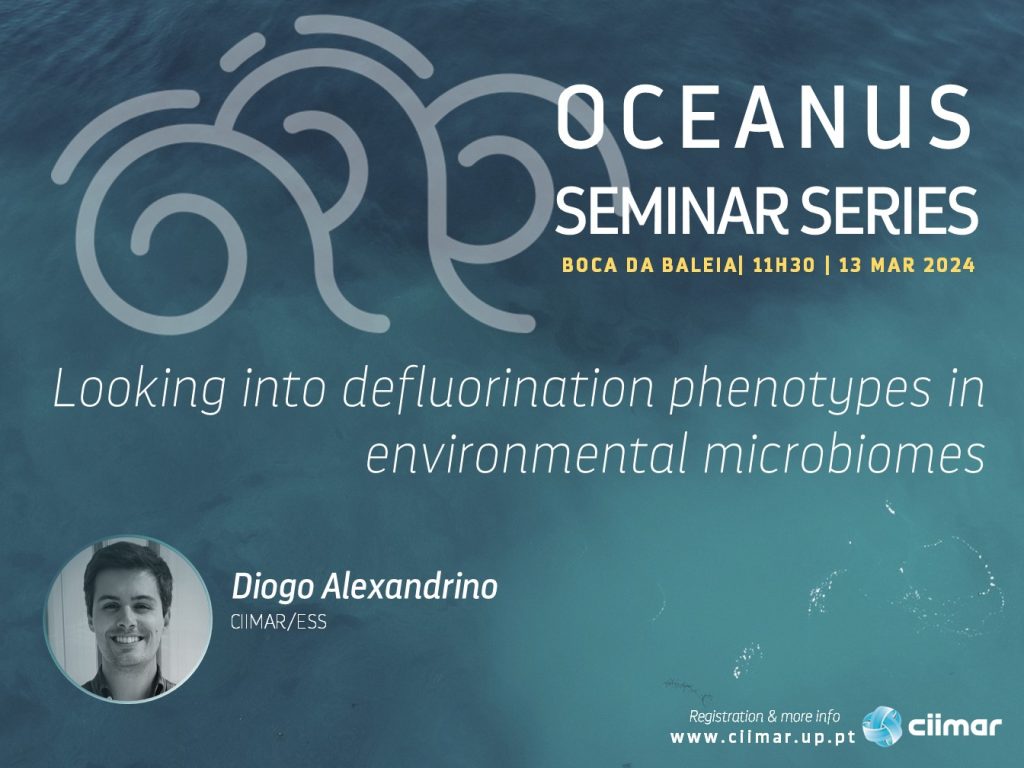Oceanus Seminar Series | 13 Mar | Diogo Alexandrino | 11h30

Title: Looking into defluorination phenotypes in environmental microbiomes
Microbial defluorination is a fascinating and valuable biocatalytic operation, as it is the only way to streamline the mineralization of a fluorinated pollutant via biodegradation. Despite its potential for bioremediation applications, this catabolic process is quite rare in microbes, due to its challenging thermodynamics and the typical stability of fluorinated substrates. Our research has been focused on bioprospecting defluorination phenotypes across different environmental microbiomes and elucidating the ecological and syntrophic relationships involved in these biotransformations. More recently, we have also been focused on gathering insights into non-catabolic approaches to improve defluorination outputs, either by modulating bacterial homeostasis or by merging bacterial catabolism with synthetic catalysis. This seminar summarizes our main results and presents our future research prospects surrounding these topics.
Name: Diogo Alexandrino
Diogo Alexandrino is a researcher at CIIMAR and an Invited Adjunct Professor at the Department of Environmental Health of School of Health (Polytechnic of Porto). Diogo’s main research interest focuses on studying the physiology and metabolism of the bacterial degradation/transformation of (poly)fluorinated pollutants. He’s also highly interested in harnessing bacterial processes for pollution control, to mitigate anthropogenic pressures and to improve the circularity of various waste streams, either by using axenic bacteria, tailored bacterial consortia or by merging bacterial metabolism with synthetic processes.
The seminar will take place at CIIMAR headquarters (Boca da Baleia Auditorium).
External members of CIIMAR should send an email to slopes@ciimar.up.pt, requesting authorization to enter the Leixões Terminal area
If you are a CIIMAR member you can also access last seminars recordings through the LINK.
Website by: Glitz Design